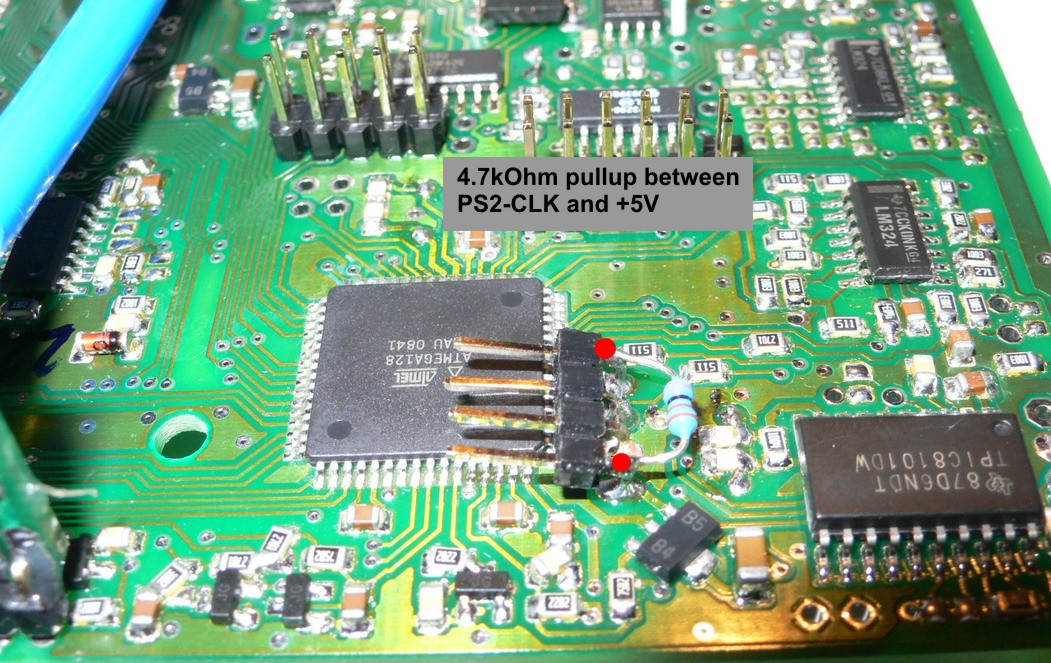This page is about assembling a 3.5 board with pics (hope it's useful for someone).
Some stuff which is not common to factory installs:
- I'm using external dual-voltage flyback circuit (for much better injector control), so internally the low-voltage flyback is simply connected to EC36pin23
- I'm using pin headers instead of soldered wires, this makes servicing and disassembly neat
- I'm using IRF640N FETs instead of the insulated FQPF20N06L drivers for injectors. These are necessary to survive my flyback.
V3.5 bottom:
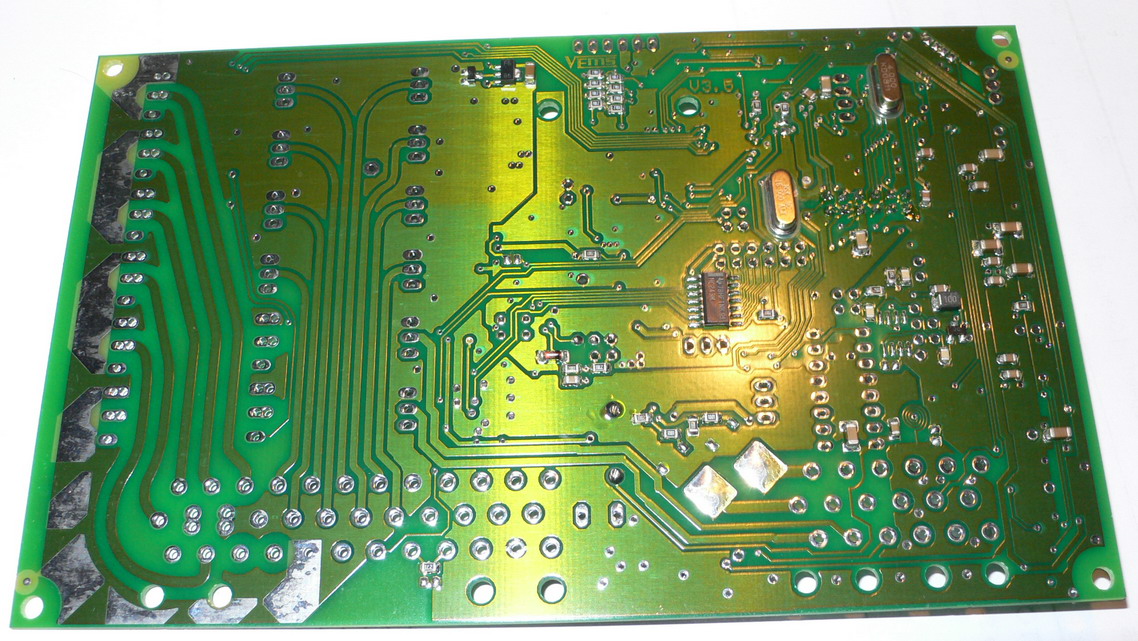
Top:
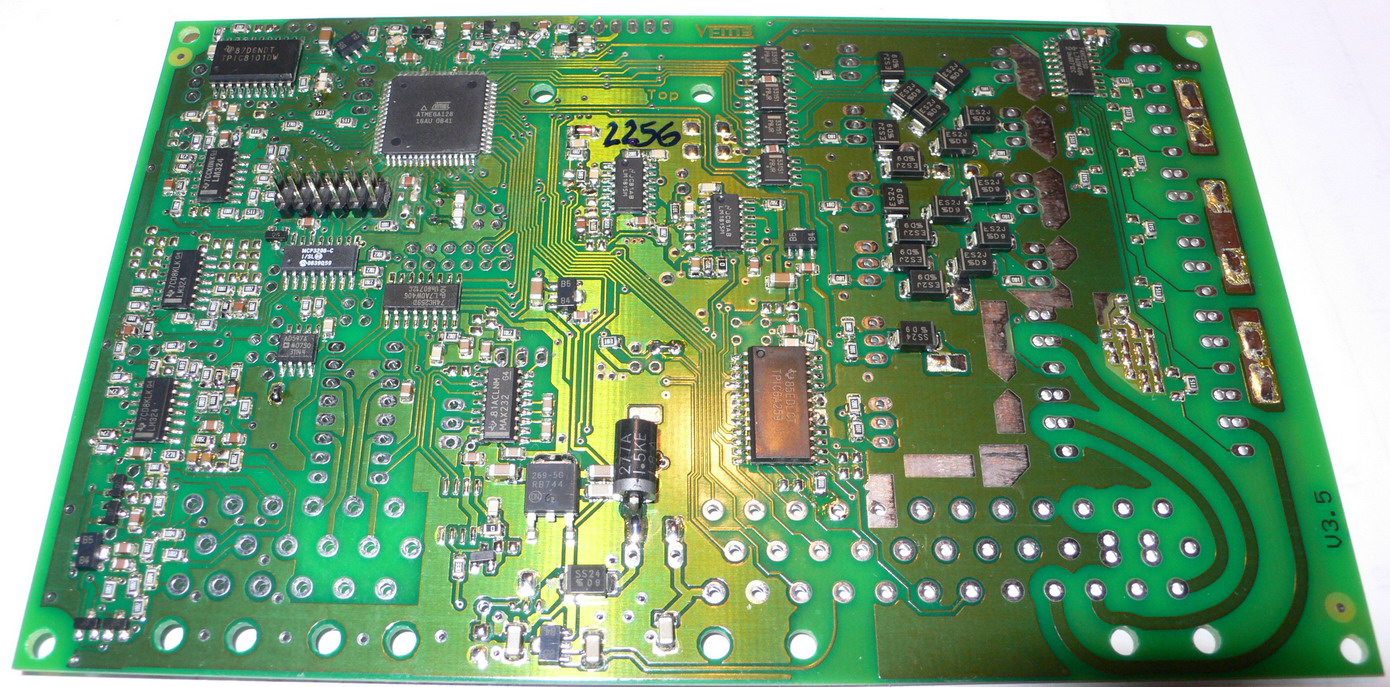
Internal flyback and supply-voltage inductance connected. I use external dual-voltage flyback (MembersPage/GergelyLezsak/FlyBack), that's why flyback connection is a simple wire here.
With high-Z injectors or ballast resistors it is preferred to use a 30V zener diode here.
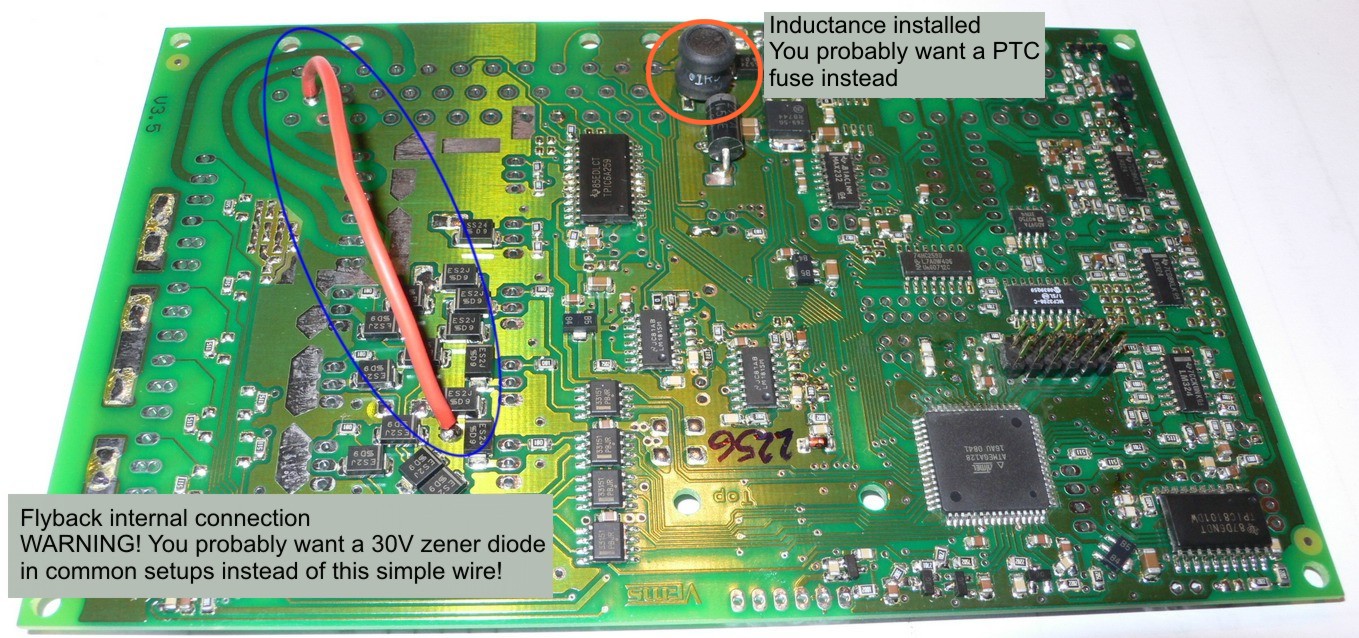
Econoseal-36 in place:
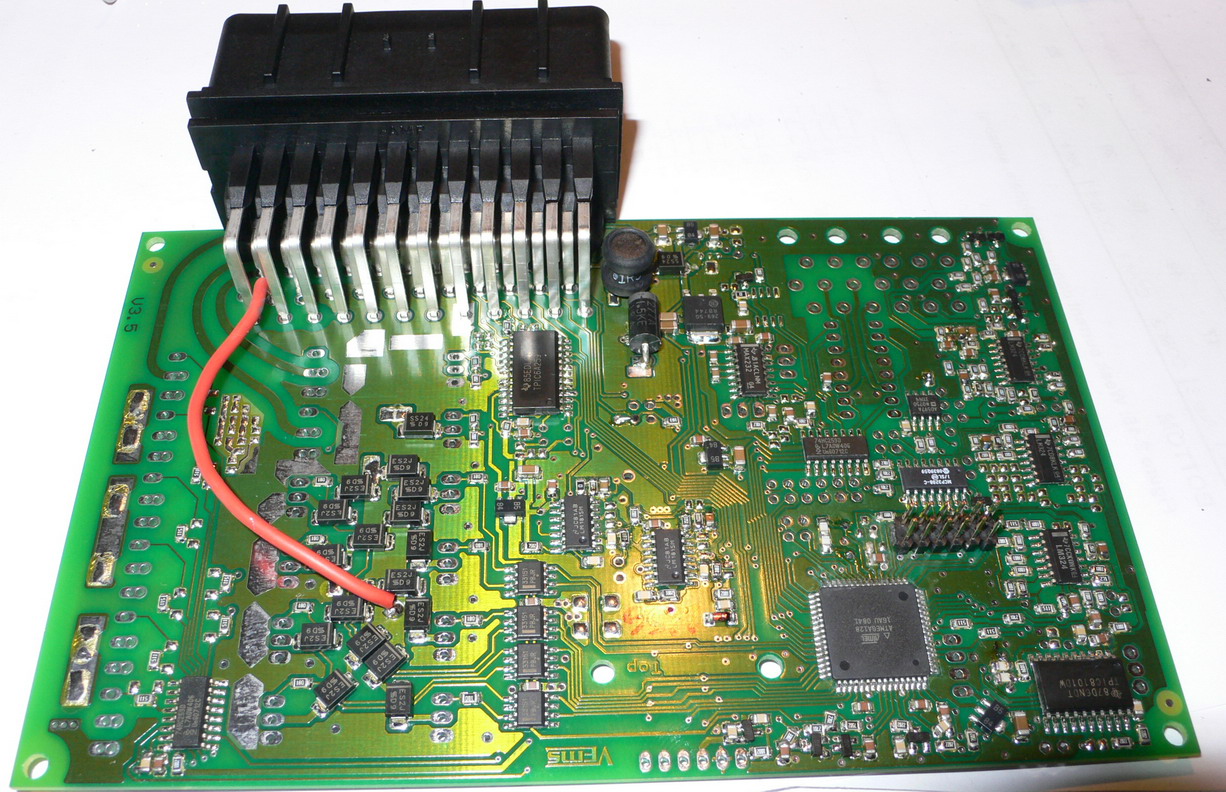
Frontplate fitted (hammered) to EC-36 to show the final position of EC-18:
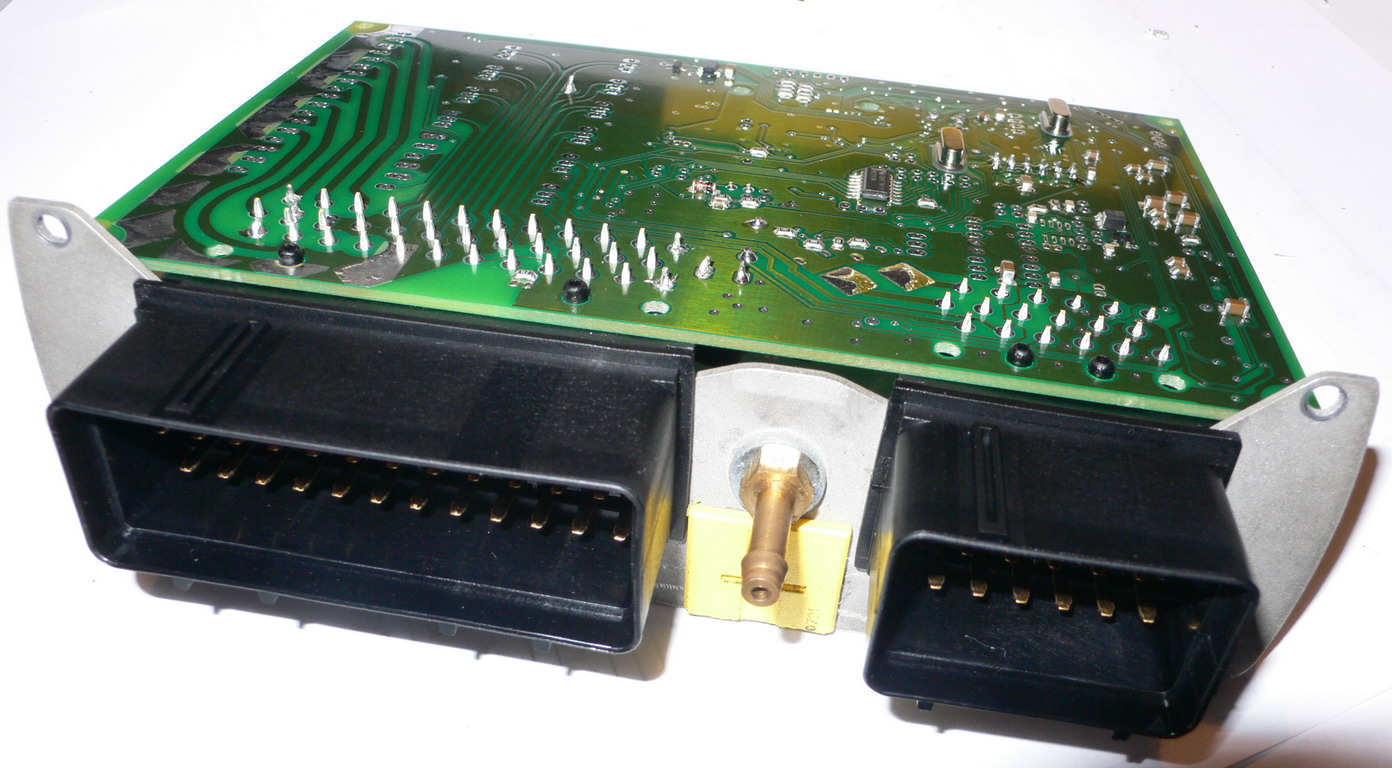
Both Econoseal connectors soldered and two bottom wires (green) of RS-232 serial connection. After this is done, the board is ready for a bench-powerup and communication test
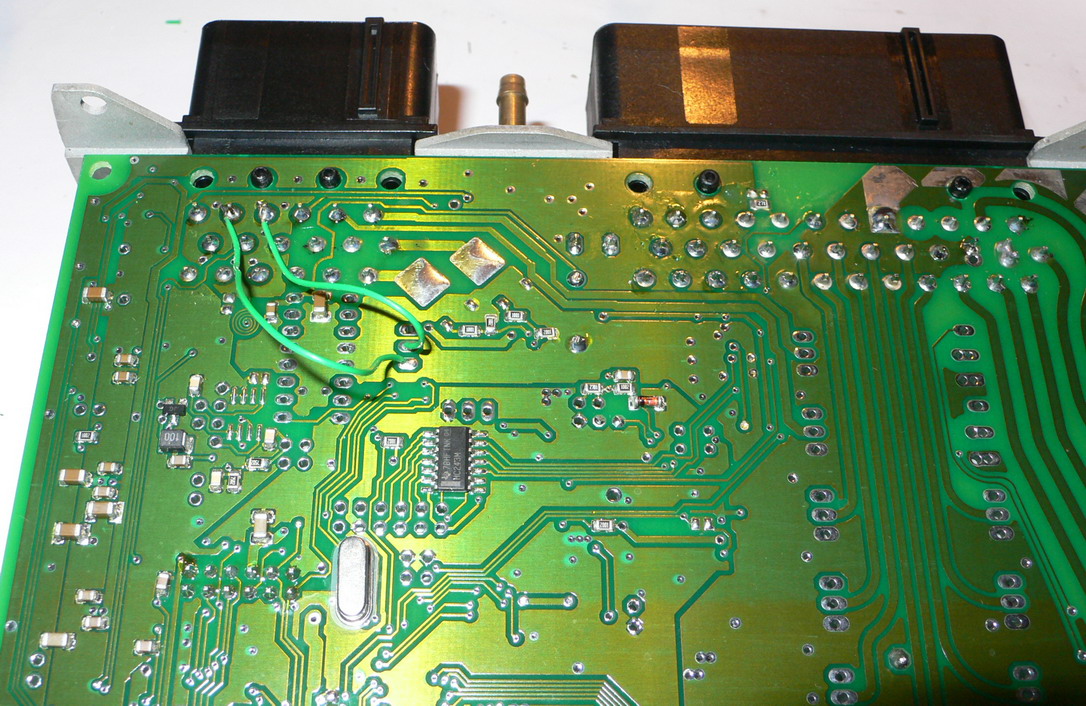
Ground reinforcement on the right side (pink wire, red circles)
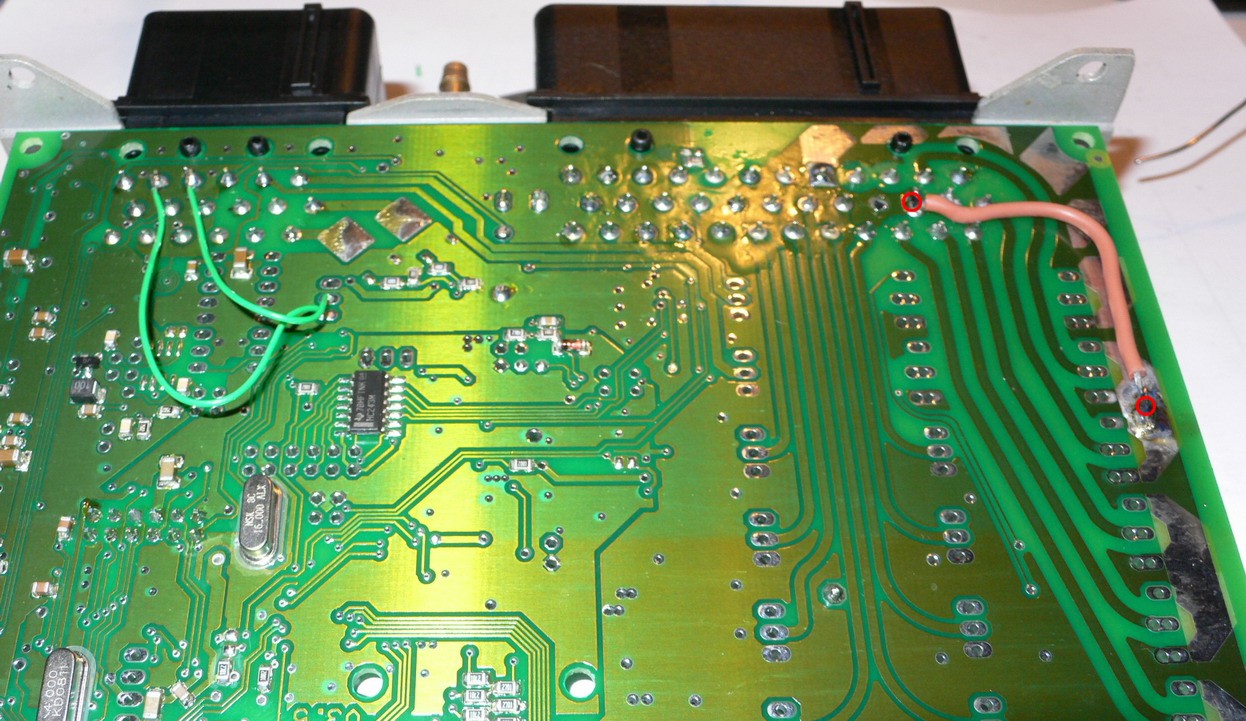
Stepper chip populated (blue oval) and pin headers for LCD (red oval)
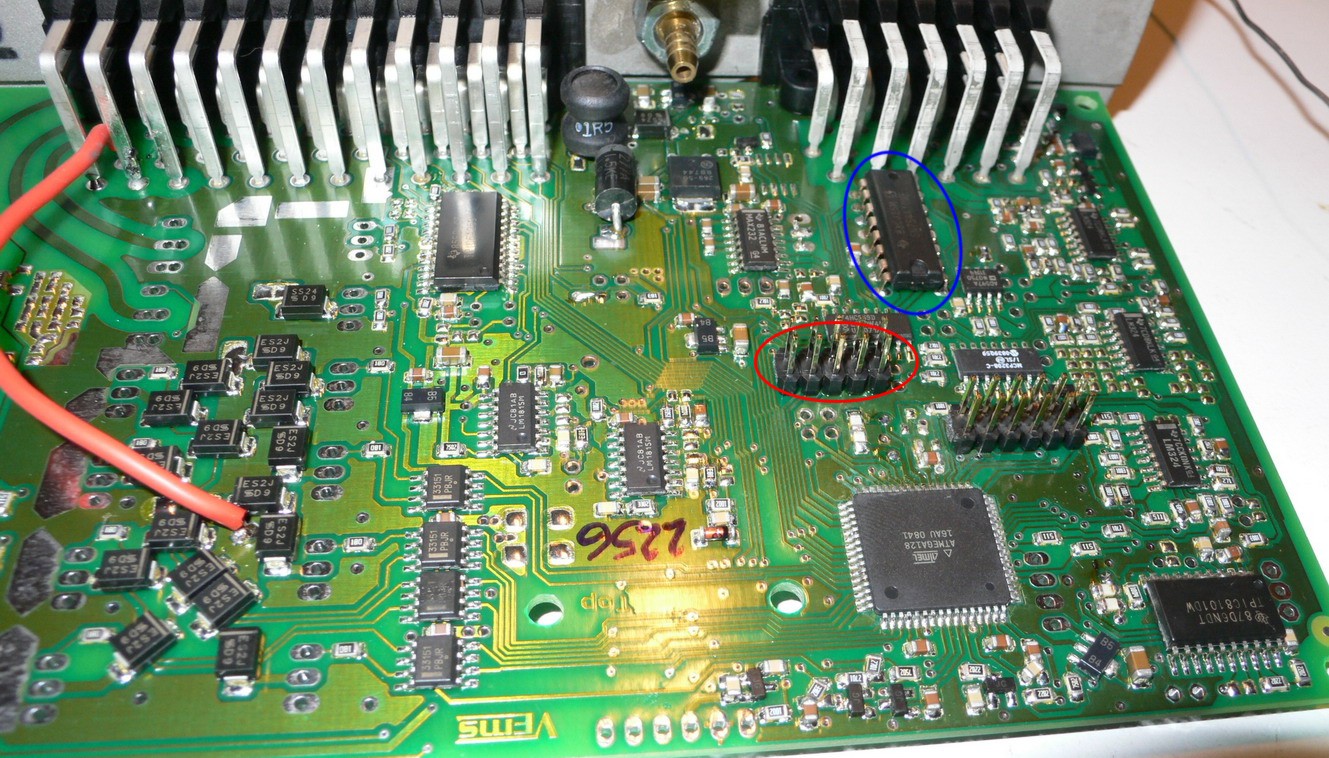
Solder-blob to enable primary VR chip:
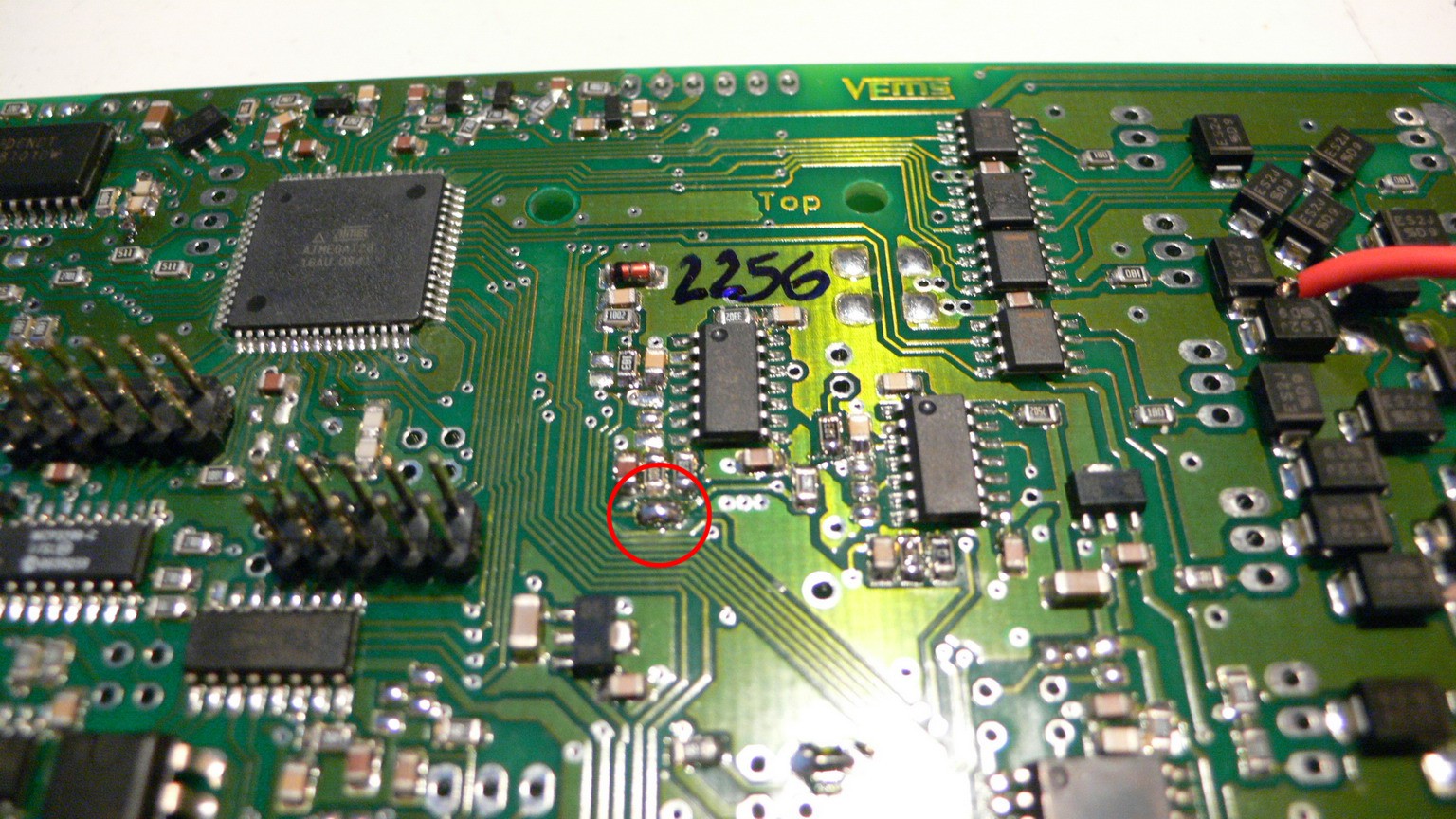
I'm going to use 90-deg. bent pin header for PS/2 keyboard input. It's just placed on top of the processor:
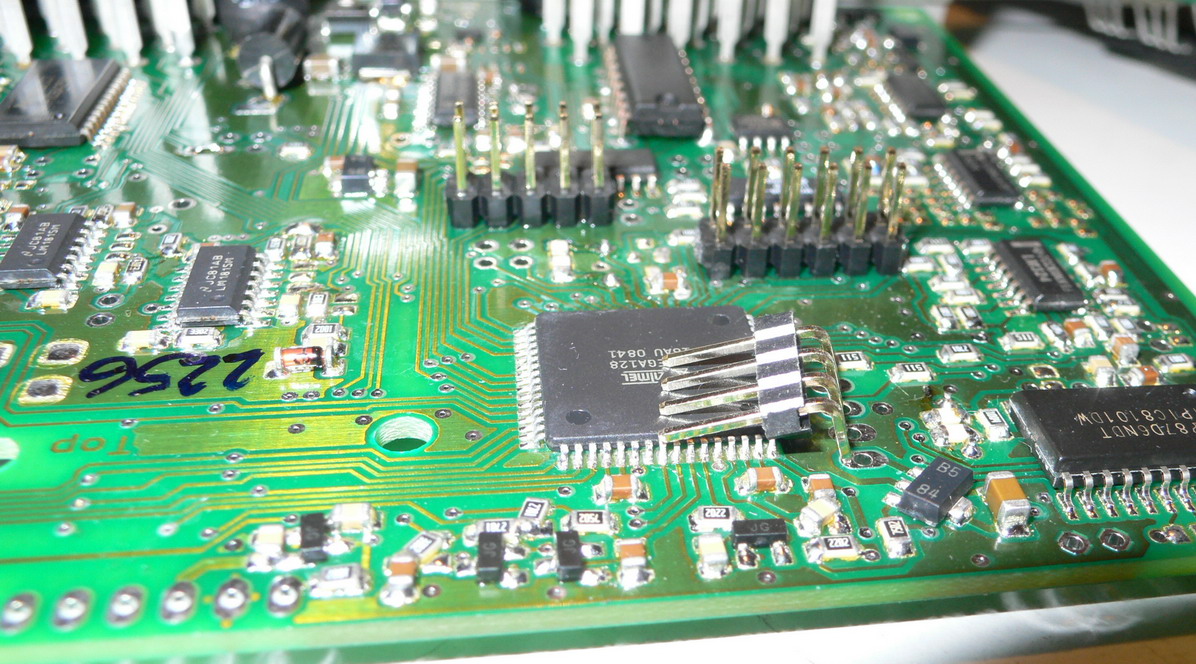
Bent PS/2 pin header soldered. This position will clear SDCard logger above
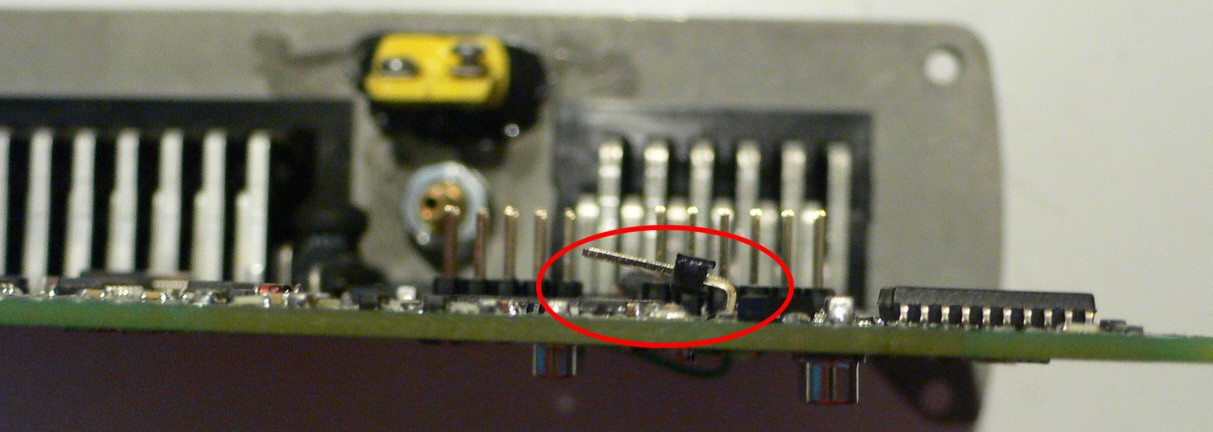
Internal MAP sensor board soldered and pneumatic tube connected:
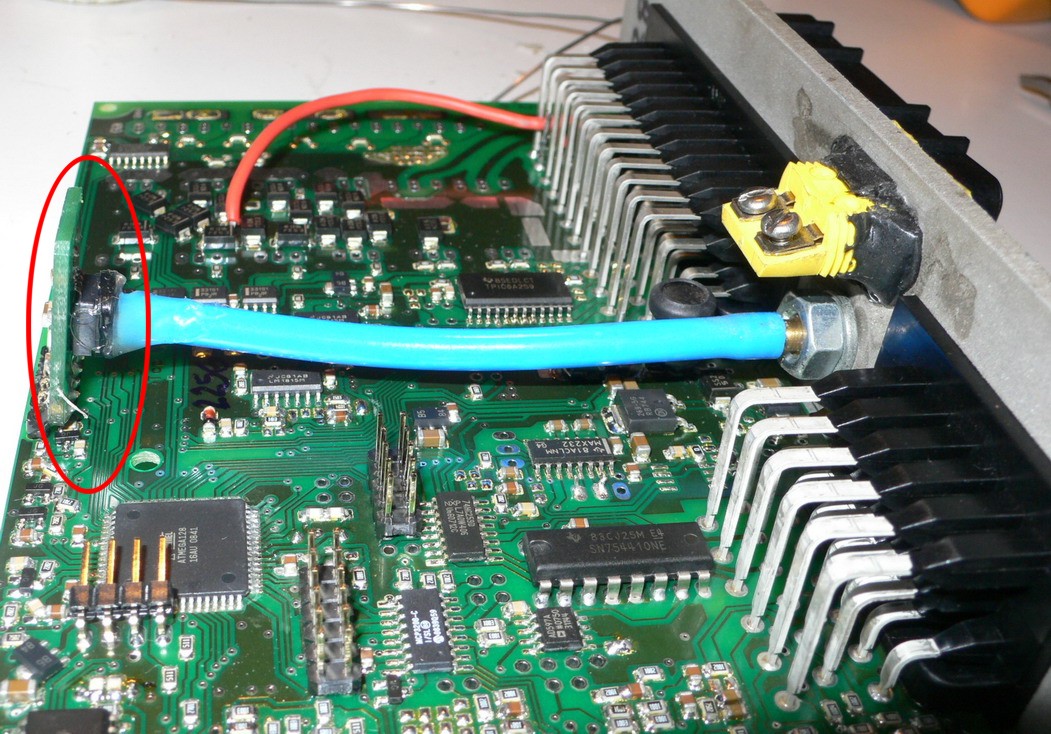
Another GND reinforcement (red dots, pink wire):
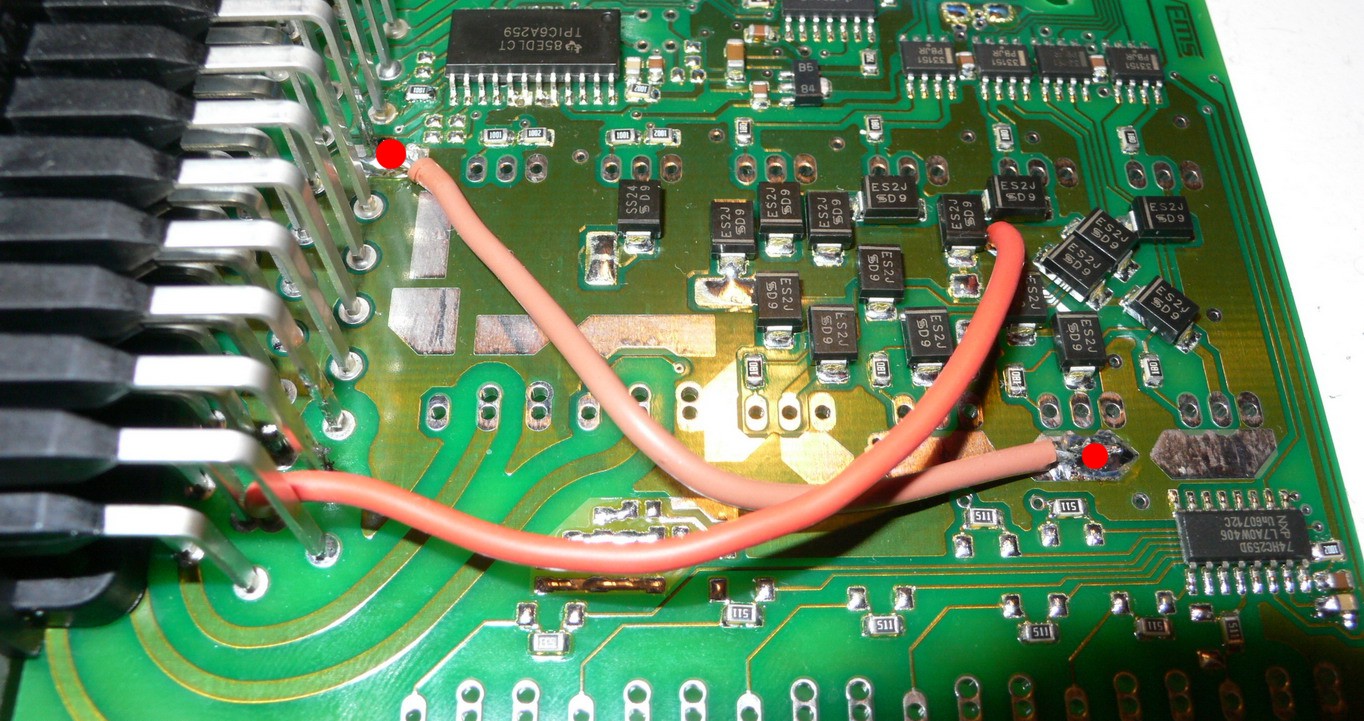
3 analog input channels and knock(1) connected to EC-18:
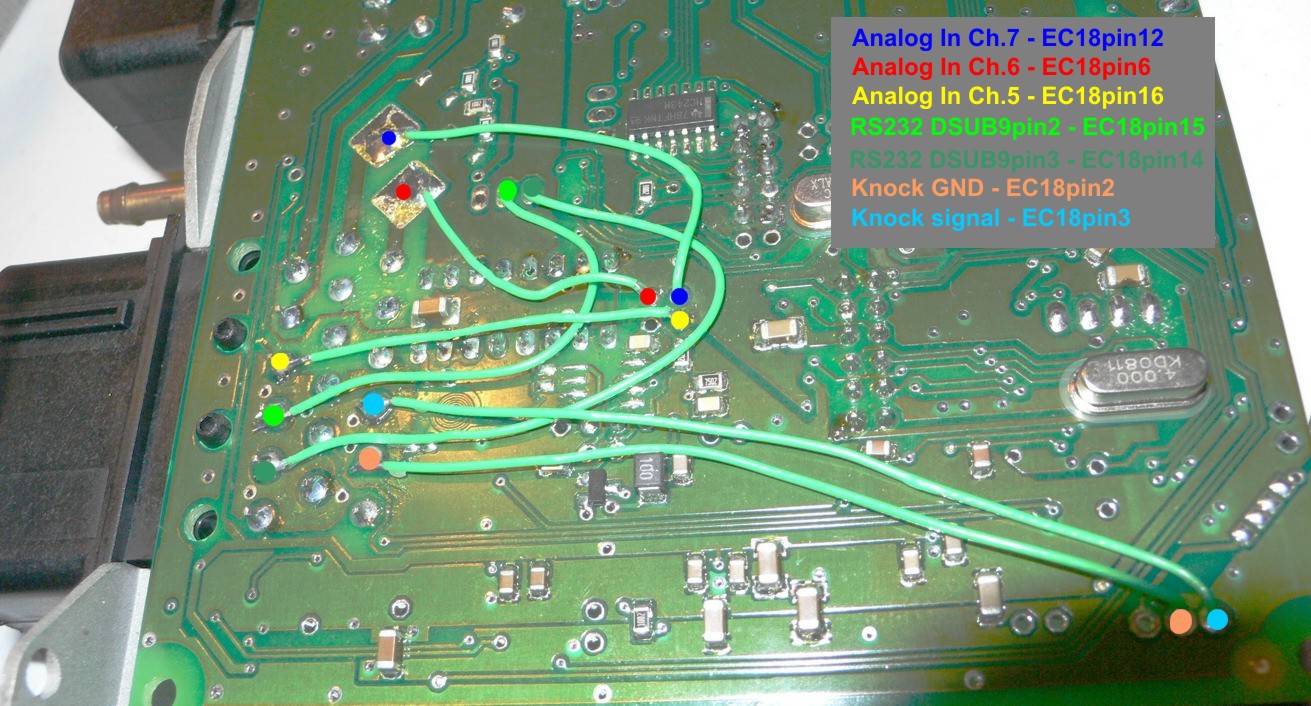
All the power drivers (FETs) installed here:
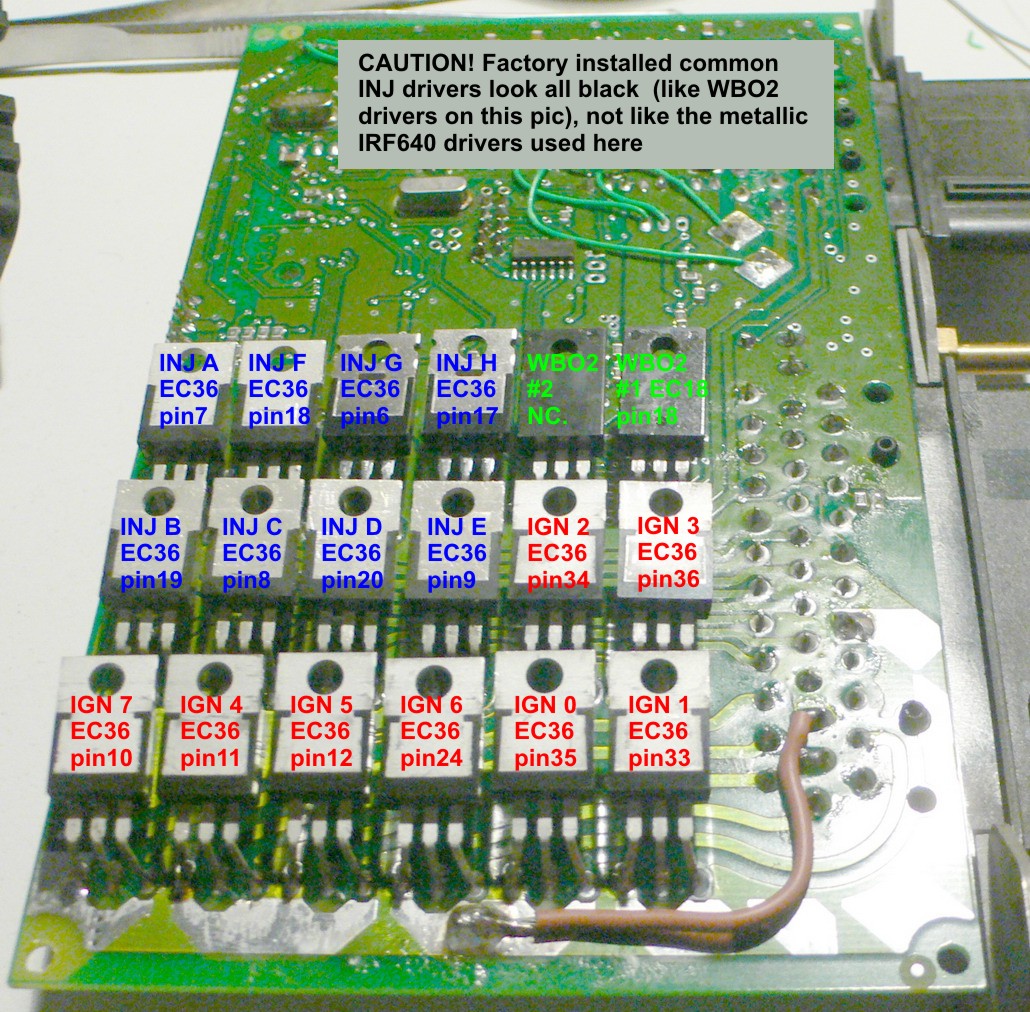
5v1 zener diode installed to PS2-pin header, to protect PS2/CLK pin, for wheelspeed input. Note that this SMD diode is originally not supposed to be here, I just found a ground nearby using a PCB through-hole
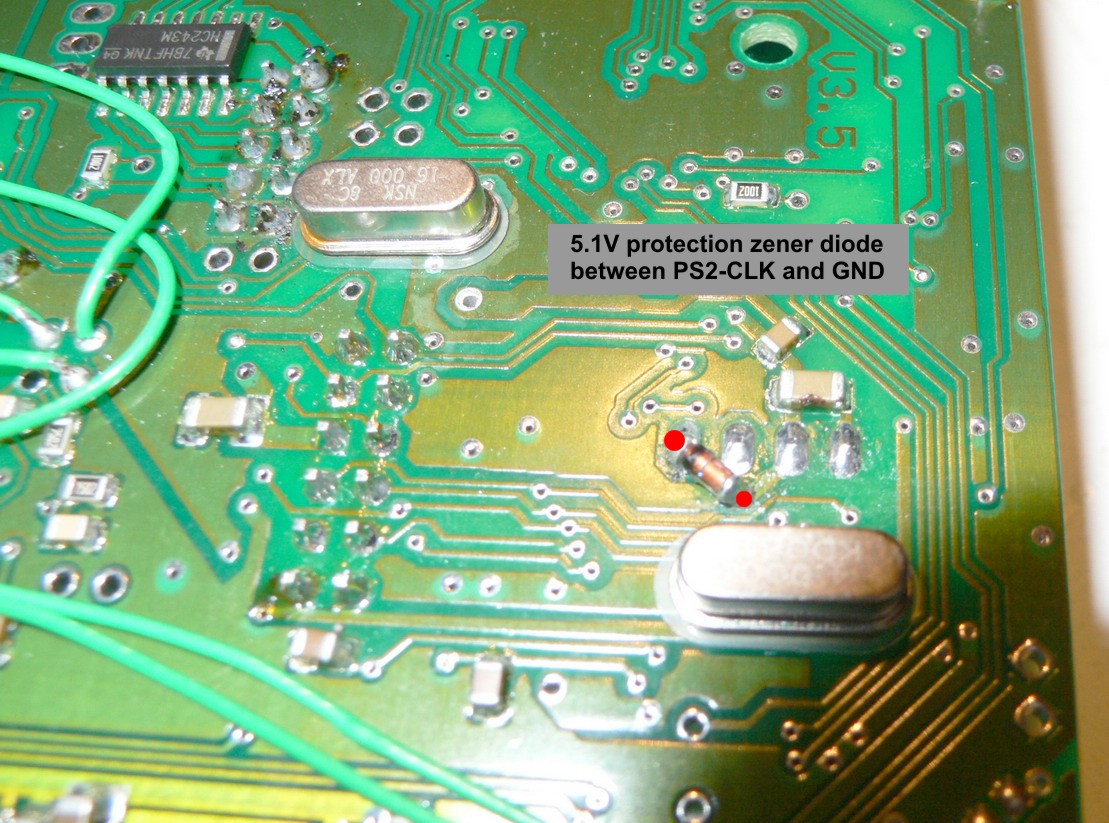
4.7k Ohm pullup resistor connected to +5V signal on pin-header
